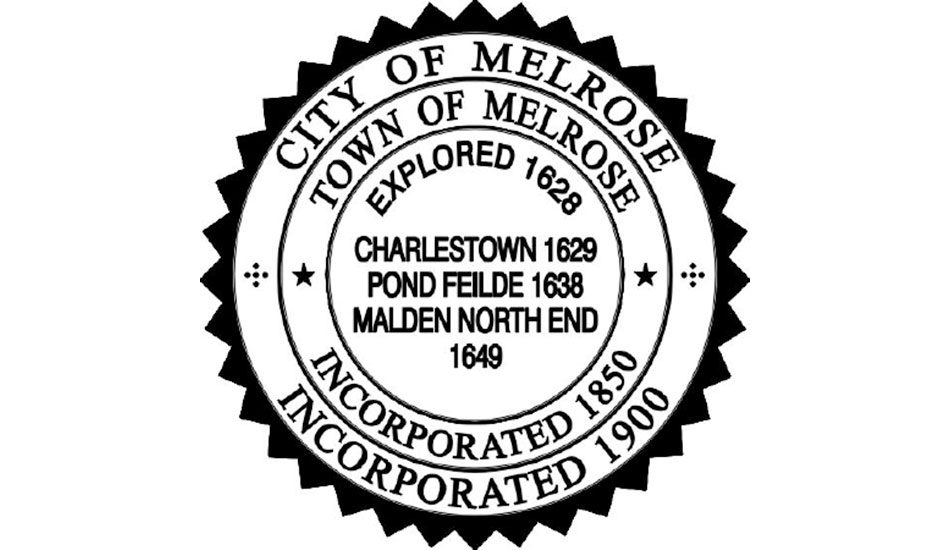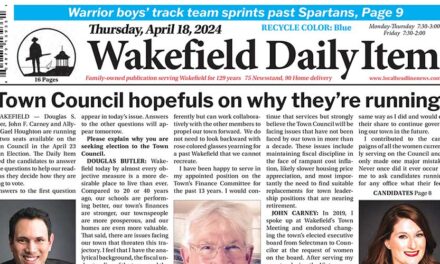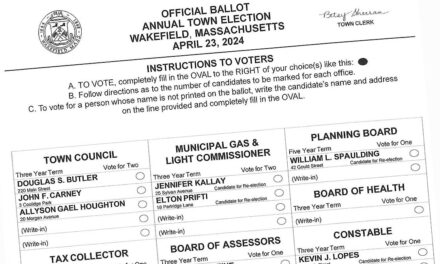Councilors on Monday approved the borrowing of about $10.8 million, which is estimated to be the cost to the city as it seeks major library renovations. The entire project is estimated at $21,010,000 and includes several key outside sources of funding assistance. The Mass. Board of Library Commissioners has approved a critical grant of $7,993,290. The Melrose Public Library Trustees have generously pledged a donation of $2 million. A Green Incentive Grant is worth another $195,257 toward the improvements.
The $10,821,453 approved this week would be borrowed and paid off over time. However, the project has the potential to attract additional donations and any additional monies raised would reduce the amount of debt required to fund the project.
The City Council received the official order from Mayor Paul Brodeur on September 13. When he submitted it, Brodeur said, “This is an incredible opportunity for Melrose. For about fifty cents on the dollar, we can have a modern and accessible library that will serve our community for decades, all while restoring and preserving the historic Carnegie building. I’m looking forward to presenting the project to the Council in greater detail as it moves through the legislative process.”
At an August public forum, Brodeur and others outlined the project and answered questions. The panel consisted of the Mayor, Library Director Linda Gardener, Planning Director Denise Gaffey, Charlie Hay of Tappé Architects, Director of Strategic Initiatives Margot Fleischman, Auditor and CFO Patrick Dello Russo, and Lauren Stara of the Massachusetts Library Commissioners who joined remotely.
Panelists provided an overview of the project’s history, which dates back to 2013, outlined the building’s needs and proposed solutions, and addressed common questions about the renovation. One of the most frequently asked: will taxes go up? The answer, said Fleischman, is a resounding “no.”
The current overall project estimate is approximately $21 million. With the MBLC grants, as well as a $2 million gift from the Melrose Board of Library Trustees, the City must secure $10.8 million in local funds.
Director of Strategic Initiatives Margot Fleischman offered a mini-lesson on municipal bonding, explaining that, pending City Council approval, the City plans to borrow the remaining funds at low interest rates and repay them using funds within its budget, emphasizing that such a process is neither a debt exclusion nor an override and would not reset taxes at a higher rate.
“Once we got the notification from the Mass Board of Library Commissioners that we were next in line for funding, a six-month clock started on securing the City’s part of the project costs,” Fleischman said. “We’ve actually been waiting for this moment to arrive for almost 5 years, and now it’s urgent that we act or we will lose the $8M.”
The MBLC stipulates that grant recipients must secure local funding within six months of the award, which puts the City’s deadline at January 8, 2022.
Melrose’s Chief Financial Officer, Patrick Dello Russo, also weighed in on the project’s affordability, saying, “I would not be here this evening if I had any reservation whatsoever, on the ability of this city to fund this project. I don’t. The funding of this project has been in the 30 Year Debt Management Program of the city for a number of years, in our 5-year Capital Improvement Plan, and is not ‘new’ news to our financial portfolio. We have planned for this.”
The presentation also included a short video tour of the library which highlighted some of the structural and accessibility challenges the current layout poses. Library Director Linda Gardener expanded on these deficits, mentioning that the children’s room, currently located in the basement, is difficult to access with strollers, and that the building has serious system deficiencies such as poor lighting and 14,000 square feet of asbestos tile.
“The great news is that these issues are solvable through this incredible grant opportunity,” Gardener said. “This project will be both historic and transformative. It will build our capacity to meet the needs of more people of all ages, interests and abilities. Not just now, but for decades to come.”
Architect Charlie Hay echoed these sentiments has he walked through the proposed design.
“It does an awful lot of exciting things. It’s a really exciting project. This is one of those projects that’s truly transformative,” said Hay.
The new building would restore the original Carnegie entrance, and the proposed addition would offer increased visibility of the original façade. The design also addresses a significant accessibility need by adding an at-grade main entrance, allowing all patrons to enter through the same doors, thus negating the need for the infamous 76-foot ramp in the back of the current building.
Another big looming question addressed in August: What about the Public Safety Buildings? Mayor Brodeur assured attendees that going forward with the library project would not impact the City’s ability to move forward on other critical projects like the Public Safety Buildings. The Public Safety Buildings, like the Middle School, will require a debt exclusion.
Planning Director Denise Gaffey, who also serves as chair of the Capital Improvement Program Committee, put the library project into the context of the City’s overall Capital Improvement Plan. The group last met in November 2019 and identified eleven “Group A” priority projects, which are the most urgent and high-priority. To date, seven of them have been completed or fully funded.
“The City has been very proactive in addressing these capital needs,” said Gaffey.
The Mayor concluded the presentation by encouraging residents to reach out to their City Councilors to express their support for this project.





